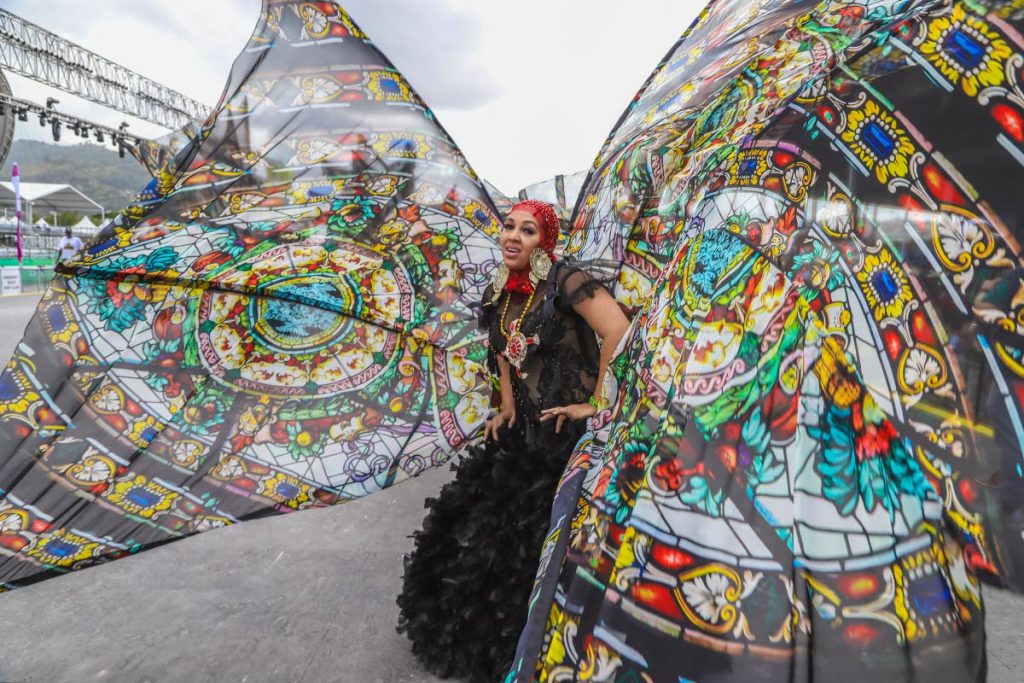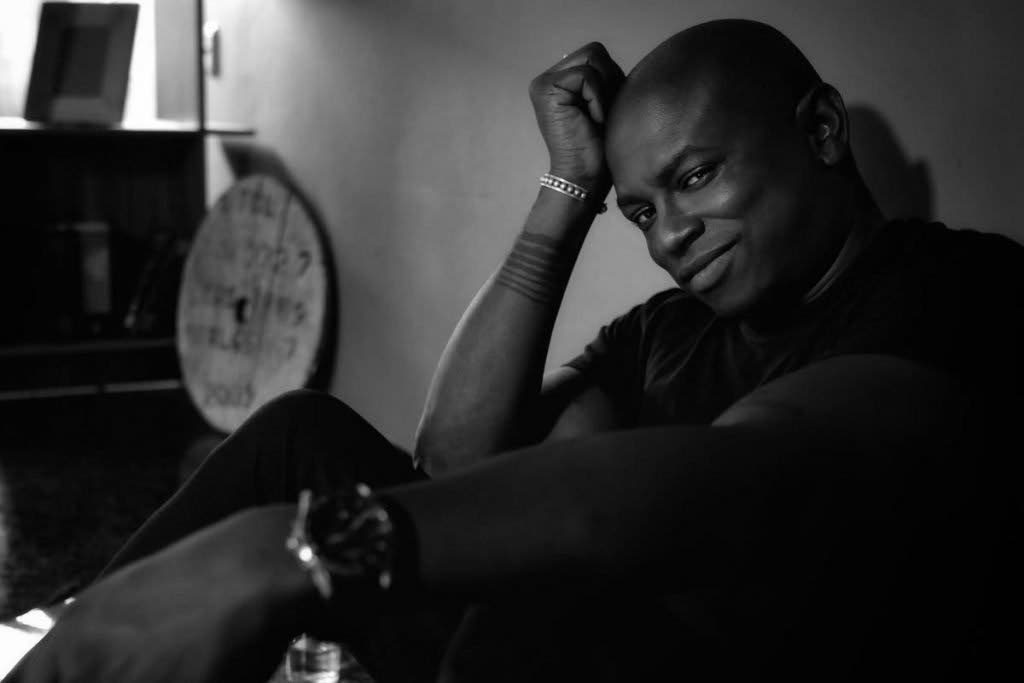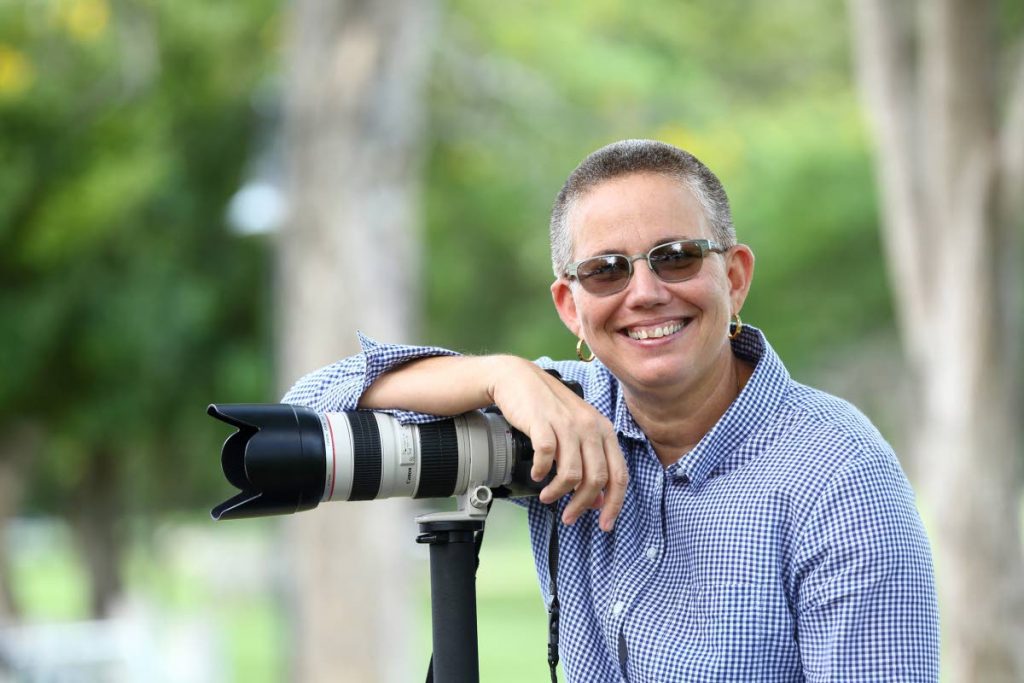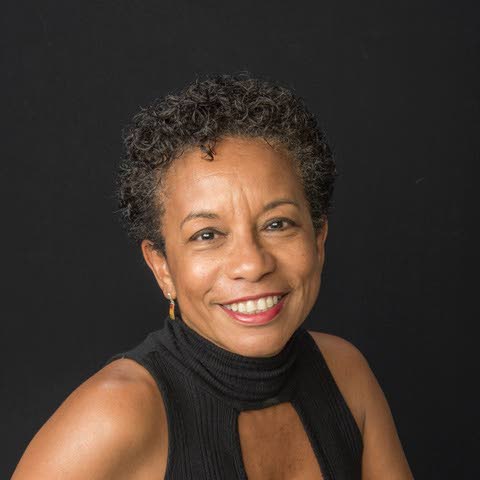Making a moment last a lifetime

A panel discussion on Carnival photography was part of the annual Bocas Lit Fest programme, at the National Library, Port of Spain. But photographers Maria Nunes and Kevin Browne were uneasy about the very first question and specifically the word “capture” when chair Franka Philip asked what a photographer “captures” when they photograph Carnival.

Browne, the winner of the OCM Bocas prize for his book High Mas, said: “For me – I don’t try to ‘capture’ anything. The way I understand Carnival, mas and Caribbean culture is an ongoing project in understanding one’s freedom and articulating one’s freedom. So I have a real aversion to using the word ‘capture’ even if I am using photographic language.”
For Nunes, who has published a book titled In a World of Their Own: Carnival Dreamers and Makers, the word “capture” is also problematic
and one she said she doesn’t use in her relation to photography.

She said: “For me it is about energy, vitality. Those are the things I try to find a way of showing you how I was feeling when I was experiencing something, and what I thought I was experiencing in the person.
“For me Carnival is dance. Everything is about movement – and that’s always the challenge in still photography. How do you get people to feel this thing that is moving?”
“Also, it’s about how can I have something to say about history? It’s a hard and intangible thing, but I feel my photographs are about having a conversation with history.”

The other panellist, Christine Norton, daughter of legendary photographer Noel Norton, was there to speak on her father’s book, Minshall by Norton, which is a collection of Norton’s images of Peter Minshall’s mas over the years.
Speaking about her late father’s work, Norton said: “I strongly felt that he’d set out always with his camera to capture the story of Carnival. You don’t see too many close-ups or characters. “What you are seeing is him trying to tell a story of what he sees in front of him. Sometimes even the behaviour of people, sometimes their hairstyles. He was trying to tell a story of the time, setting and the environment.”
PHOTOGRAPHY
continues on Page 8B
She also said a lot of her father’s photographs over 50 years captured the story for future generations, so they’d know how things were in earlier times.
Regarding legacy, Norton said her father’s work to successfully and consistently preserve his legacy to her was quite phenomenal, given that he did it this work the bottom of the Savannah stage, perched on a ladder, under poor lighting – all situations that make things hard to capture. But because he was a nation-builder in his field, she said he felt a responsibility to record what was happening for future generations to see.
Nunes likened the Noel Norton collection to a vault of memory, through his lens.
That aside, she said: “I think the role that any photographer plays or engages in the kind of work we are doing is about contributing to the memory we have of ourselves. The photograph is a window for people, an invitation to remind them this is part of who we are. We need the photographic records because without them we only have memory. I see part of what I am called to is documenting the work of the artist I feel a connection to.”
Browne said he was thinking about legacy as not only an engagement of the past, an archive or a memory, but rather how one imagines a future.
“The image is not just a snapshot or record of the past. It is a record of one’s imagination, of future appreciation. So you are looking at the camera, the chamber of this mechanism, as something that projects and reflects, and refracts light.
“It’s not just about light photography but the idea of legacy of light, Caribbean light, light on us and on our bodies, our minds, imagine the different lights that we are dealing with. So when I’m thinking about that, I’m thinking about the camera itself as this purveyor and creator of legacy, and I’m thinking about history and that vault.”
He spoke of looking at the women’s bodies through a particular kind of lens.
“Bikini and beads mas is replete with legacy. Jewels. But there is fundamental disposability to our Caribbeaness. I’m thinking of legacy as a deliberate response to that kind of misrepresentation.”
Norton recalled her father capturing Minshall’s famous individual From the Land of the Hummingbird (1974) flying over the Carnival stage by taking composite pictures to get the effect. She said that was the beginning of the 31-year relationship (1974-2006) between Noel Norton and Minshall.
On the conditions under which photographers work at Carnival, and copyright, Nunes said the infrastructure is very challenging.
Recalling some years ago when an overhead bridge was erected at the eastern end of the Savannah stage, she said it was a photographer’s dream but it’s not there any more.
“We have not properly set up to optimise how images are going to be seen. Background advertising is bad. We need to think more about the imagery of what comes out of Carnival.”
Browne sees the problems faced by photographers on a different level.
“The idea of having to pay to observe and to protect and preserve your culture is a vulgarity of enormous proportion.
“But that is deliberate. It means it is shutting us out, providing less and less access to us unless we can afford it. The amount of cuss I get for trying to take a picture of my culture, you would think I was some sort of interloper or problem, that I was interfering with the people’s mas, and you are being made to feel like an outsider in your own country. That is problematic.
“To talk about the problem and not figure the solution is equally troubling. For me the solution is to think of photography as radical civic practice.”
Unfortunately, not much time was available for questions and answers, but Dr Rhoda Reddock was able to say Carnival belongs to the people, who are now sadly relegated to pulling rope and servicing the elite these days.
“We need a larger discourse on the capture of the people’s festival.”


Comments
"Making a moment last a lifetime"